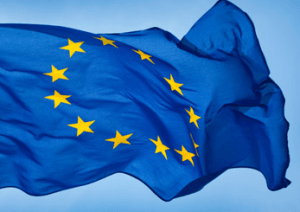EU expresses concern over clashes between NDC and NPP supporters
 With barely 21-days to the December 7 polls, the European Union (EU) has expressed concern over violent clashes between supporters of the National Democratic Congress (NDC) and the New Patriotic Party (NPP).
With barely 21-days to the December 7 polls, the European Union (EU) has expressed concern over violent clashes between supporters of the National Democratic Congress (NDC) and the New Patriotic Party (NPP).
It would be recalled that on Sunday, November 13, supporters of the two-leading parties; the governing NDC and the opposition NPP, during a keep fit exercise by the NDC in Accra clashed at the Nima residence of NPP flagbearer, Nana Addo Dankwa Akufo-Addo.
Mr William Hanna, the EU Ambassador to Ghana, has, therefore, urged the leadership of political parties in the country to publicly declare that violence by their supporters was unacceptable.
“This includes provocation, intimidation or incitement, and hate speech,” Mr Hanna stated, in Accra, on Wednesday at the official launch of National Media Commission’s (NMC) Media Monitoring Report on the 2016 Elections.
“We expect party leaders to make a public commitment to peace, just as they did together four years ago in the Kumasi Declaration.
“Violence has no place in the electoral process. We look to the forces of order to do their job impartially and prevent violence wherever it comes from and arrest those responsible for it.”
Mr Hanna said the EU hoped to see Ghana living up to its reputation for credible and peaceful elections; and they also look forward to more public debates about issues on concern to the voters.
“Above all we look forward to observing millions of Ghanaians on Election Day freely and peacefully exercising their democratic right to elect the next Government of Ghana,” he said.
He said the EU does not support any particular party, but rather democracy in Ghana, which would be strengthened through an inclusive, transparent and credible electoral process.
“That’s why we are supporting the work of the three independent commissions – the Electoral Commission, the National Media Commission (NMC) and the National Commission on Civic Education,” he said.
Mr Hanna said the three institutions played a key role in Ghana’s democratic dispensation; and they already had a good track record, hence, the EU was giving them the tools to do even better in the future.
“We also support the efforts of the National Peace Council and other actors to create the conditions for peaceful and violent-free elections,” the Ambassador said.
He lauded the NCCE for being very instrumental in promoting voter education towards the December 7 General Election.
He said over the years the EU had supported the transformation of the NMC into an efficient democratic regulator of the media sector in Ghana, especially during elections.
“Under the two previous grants, we helped the NMC to acquire a state-of-the-art media monitoring equipment and a mobile unit to monitor the media to ensure high journalistic standards in accordance with the Constitution,” he said.
He explained that this was, particularly, useful in the run up to the 2012 General Election and the 2015 District Level Elections.
He said the support also helped the Commission to reform laws in the media sector to bring them into conformity with the Constitution.
He said under the current project, in addition to regulatory work, the grant would assist the NMC to monitor the media in order to track professional deficits, including hate speeches.
Mr Hanna formally presented a media monitoring van to the Commission, which was received by Mr Kwasi Gyan-Apenteng, the NMC Chairman.
Mr Gyan-Apenteng lauded the EU for the gesture towards the Commission, and promised that the van would be put to good use.
He urged the state-owned media houses to as part of their constitutional mandate give equal coverage to all political parties.
The NMC Media Monitoring Report 2016, which was conducted from September to November, covering 56 radio stations and eight television stations, indicates that the governing NDC had 47 per cent, while the opposition NPP had 31 per cent, with the remaining to the other minority parties.
Mr George Sarpong, the Executive Secretary of the NMC, who presented the report findings, explained that the high percentage points scored by the NDC would be attributed to the fact that it had to respond to issues raised by the other political parties on how it was governing the nation.
Mr Kenneth Ashigbey, the Managing Director of Graphic Communications Group Limited, in his contribution, urged development partners to extend their support to state-owned media organisations, in order to assist them to fulfill their constitutional mandates towards all political parties in the country.
Source: GNA
